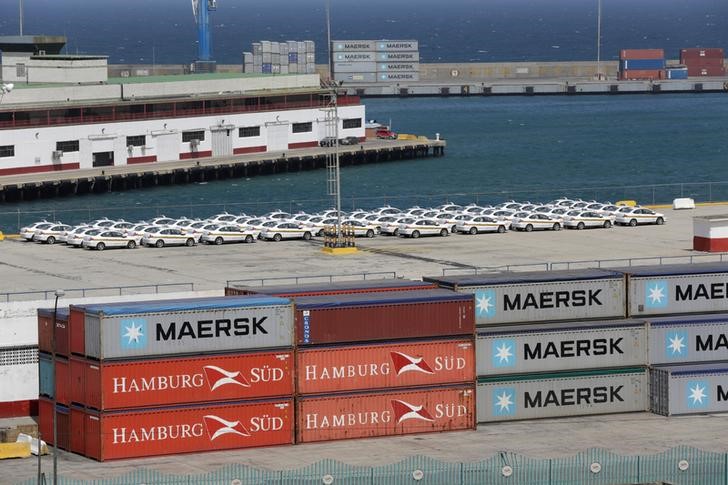This post was originally published on this site
https://i-invdn-com.akamaized.net/news/LYNXNPEC4309A_M.jpg © Reuters.
© Reuters.By Geoffrey Smith
Investing.com — It’s conventional wisdom that Europe’s companies are more exposed to economic spillovers from the coronavirus outbreak than U.S. ones. China accounts for more of eurozone exports than of U.S. ones, and the eurozone in particular does not share the U.S. economy’s twin props of expansive fiscal policy and robust domestic demand.
So while the U.S. stock market was happy to shrug off Apple’s revenue warning earlier this week, European markets are evidently struggling more to look through the short-term impact of the outbreak.
The benchmark index was down 0.2% at 432.94 by 5:15 AM ET (1015 GMT) on Thursday, after a string of disappointing corporate updates in which the virus figured prominently.
Air France KLM (PA:) fell 5.5% after saying the virus would cut operating profit by as much as 200 million euros ($215 million) in Q1. It didn’t help that the group entered the year on a weak footing, with falling freight traffic and slowing passenger revenue growth. The promise that the group’s full-year fuel bill would fall by 300 million euros, or 5.5%, due to the drop in oil prices, barely helped.
The news also dragged Deutsche Lufthansa (DE:) down 2.7%, but short-haul specialists – for whom the fuel issue is more important than Chinese travel trends – outperformed.
Covid-19 was also visible in the results of AP Moeller-Maersk (OTC:), the Danish shipping company that operates the world’s biggest container fleet. Maersk warned of a “very, very weak February” and a “weak” March but chief executive Soren Skou told the Financial Times that he expected a “sharp rebound” in global trade from April, as China’s factories get back to normal.
Skou added that on current trends, the virus would “not have been a huge event for us.”
Maersk stock, a bellwether for global trade, rose as much as 4.0% to its highest in over a month before paring gains as the market remembered Maersk also forecast a drop in underlying operating profit this year and warned of “low visibility”.
Together with reports of spreading infections in South Korea, the reports pushed other China-sensitive sectors such as luxury and travel lower too.
There were other losses unrelated to China. French insurance giant AXA (MI:) fell to the bottom of the , losing 2.6% after it said it will replace the head of its XL reinsurance business after an expensive year for natural disaster claims. The news revived concerns that the company paid too much for XL two years ago. Fellow insurer Swiss Re (SIX:) was also fell 3.9% after its annual results were hit by heavy catastrophe losses from Typhoon Hagibis, Australia’s wild fires and the Boeing (NYSE:) 737 MAX disasters and subsequent grounding.
The morning’s biggest gainers were both health care names, with Germany’s Fresenius (NYSE:) and the U.K.’s Smith & Nephew (LON:) both beating expectations with their fourth-quarter numbers. Behind them came UBS (NYSE:) and ING Group (NYSE:), which both rose on the news that the Swiss giant had appointed ING’s Ralph Hamers, a renowned specialist in digital banking, as it new CEO.
Fusion Media or anyone involved with Fusion Media will not accept any liability for loss or damage as a result of reliance on the information including data, quotes, charts and buy/sell signals contained within this website. Please be fully informed regarding the risks and costs associated with trading the financial markets, it is one of the riskiest investment forms possible.

